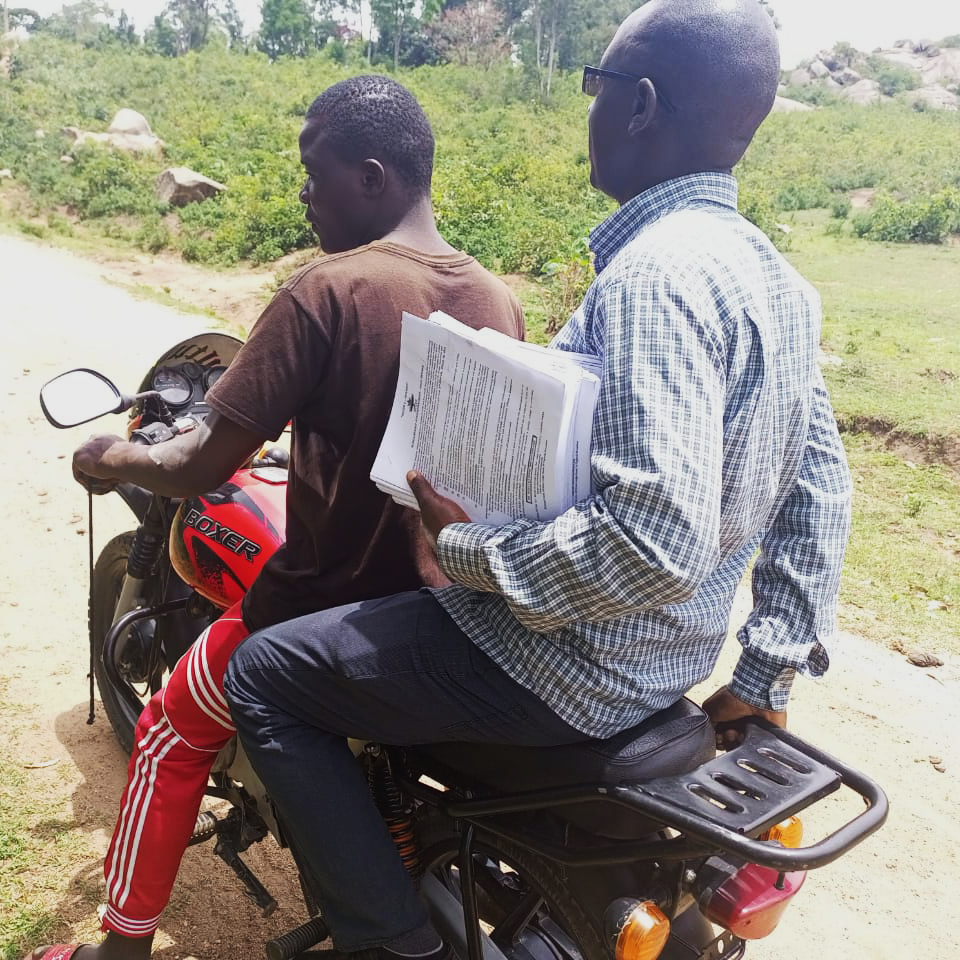
As Koffi Annan once said, “Education is a human right with immense power to transform. On its foundation rest the cornerstones of freedom, democracy and sustainable human development.” These have been the foundational principles of ACCES. ACCES serves a large part of the western region of Kenya, specifically, Kakamega, Vihiga, Busia, and Bungoma counties, with a total population of over 5 million people (2019 census). Since ACCES was founded in 1993, thousands of graduates have acquired knowledge which has in turn led to greater opportunities for employment, trade, and self actualization.
To start the scholarship selection process, we create an advertisement which is revised every year to reflect the current criteria, government policies, and ACCES society board input. The next step is to make the application form available across the areas that we serve. The application is printed and distributed across 175 wards (45 wards in Bungoma, 45 wards in Busia, 60 wards in Kakamega, and 25 wards in Vihiga) covering a total area of 7400 km2.

The scholarship distribution process is a critical and difficult task that involves travelling through western Kenya visiting villages that are not always easy to access. The distances travelled by our staff during this process are significant. This means that it takes 3 to 4 weeks of full-time work by three people to complete the process. The best way for our staff to travel is by motorbike with local drivers who know the area and paths which are not always accessible to large vehicles. This is an essential part of our scholarship process as many of those we serve do not have regular access to the internet. We take it on ourselves to make sure our applications reach those students who need it most. Traveling to villages provides us a great chance to provide these communities with information about ACCES and what we do. This acts as great publicity for ACCES and spreads a sense of hope to youth and their families who often face a sense of despair when faced with an inability to afford the cost of post secondary school.
Once the applications are in, a panel comprising of Kenya Advisory Committee members and ACCES staff carefully review each application and shortlist students for the scholarships. These students are contacted for interviews. The shortlisted students are vetted with considerations including age, gender, level of study, The Kenya Certificate of Secondary Education (KCSE) performance, and region of residence. For the students that pass the vetting process, ACCES staff conduct home visits to verify the information the students have provided about their background, type of household, employment status of the parents, financial stability, and land acreage. When the visits are completed, the successful applicants are selected and notified.
The core purpose of ACCES scholarships is to alleviate poverty through education by utilizing the knowledge of students, teachers, families, and communities to provide an opportunity to educate, empower and exchange ideas. Our work assists people in becoming assets to themselves and their communities. ACCES scholarships have empowered young Kenyans to live in a society with the skills they need to compete in the global marketplace and produce technological goods and services that can be sold on the open market. The scholarships have engaged young scholars to aspire to higher education and have helped to curb violence and crime in communities by providing a goal to work toward.
ACCES scholarships have created hope for the future and many young Kenyans have been given the opportunity to achieve their dreams. As a former ACCES scholarship recipient, I am a living testament to the life changing impact of this support.
Written by Anthony Mutevane, DPM., DBM.,BEd., MBA., Program Director, ACCES Kenya
